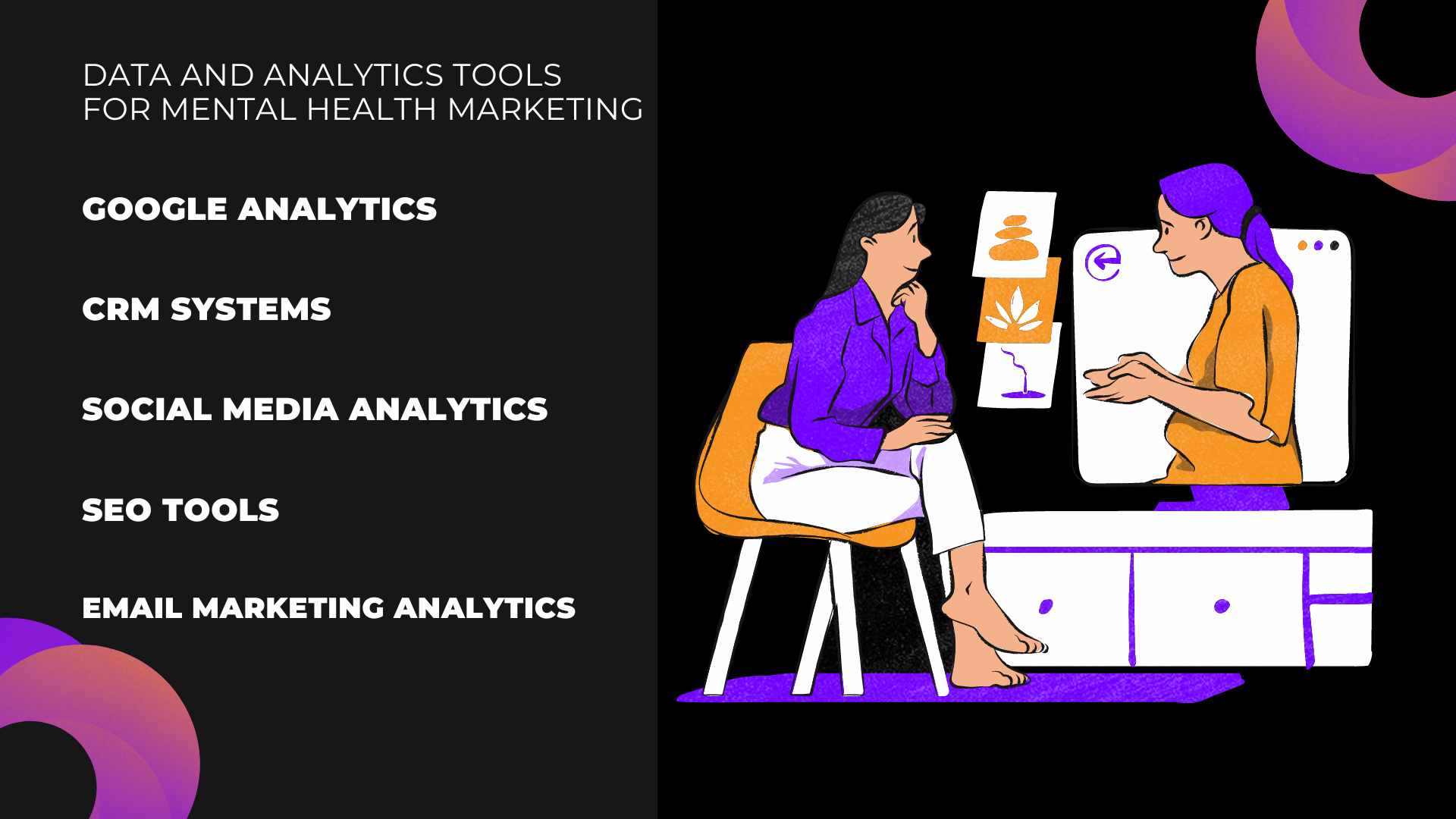Essentials of Health Care Marketing: Key Strategies for Success
Mental health marketing promotes health services, connects patients to care, and improves the health provider’s image. Health marketing requires sensitivity and regulatory knowledge, unlike other businesses. Building trust and facilitating informed life-changing decisions is more than marketing a service. Healthcare providers must contact and engage their audience to provide important services as mental health awareness and addiction treatment understanding grows.
Essentials of health care marketing demand a delicate combination of empathy, honesty, and digital strategy. Success techniques include creating trust, implementing patient-centered approaches, using content marketing, integrating digital tools, and connecting with the community.
 Exploring the Behavioral Health Market: Essential Knowledge for Stakeholders
Exploring the Behavioral Health Market: Essential Knowledge for Stakeholders
The mental health sector includes clinics, addiction treatment centers, counseling, and telehealth. Patients, families, caregivers, and professionals directing clients to suitable services are the main audience.
Behavioral health services are in demand for several reasons. The rise of telemedicine, mental health issues, and stigmatization of getting treatment have all contributed. Insurance companies are also flexible because mental health is essential to general well-being.
Key Approaches to Effective Mental Health Marketing
Before developing efficient marketing tactics, it’s important to understand the mental health market’s distinct needs. Essentials of health care marketing will cover the critical strategies for reaching and engaging your target audience while building ethical marketing.
1. Building Trust and Reducing Stigma
Trust is key in mental health marketing. It reduces behavioral health and addiction stigma. Real patient tales (with consent) and success stories help humanize the experience and comfort new patients.
Transparency about treatment alternatives, prices, and outcomes creates credibility. Clear, compassionate communication is essential to reassuring potential patients and their families. Showing your ethics and discretion may cultivate trust.
2. Patient-Oriented Marketing
Effective behavioral health marketing emphasizes patient-centered care. Whether patients require immediate treatment or are investigating their choices, meeting them where they are in their journey is necessary. Tailored care plans, compassionate messaging, and 24/7 assistance can make a difference.
For instance, offering phone, email, chat, and in-person appointments lets patients contact you in their preferred way. Personal follow-ups and regular check-ins may increase patient loyalty.
3. Content Marketing and Education
Content marketing can normalize and educate about behavioral health treatments. Mental health services blogs, addiction management articles, treatment benefits videos, and professional webinars can provide information and support.
Educational content dispels myths and empowers people to seek help. A mental health treatment center can become trusted by offering accurate, sympathetic information.
Creative content marketing ideas for mental health marketing:
- Create online quizzes to assess stress, anxiety, depression, and mental health knowledge. These tests can engage users and provide tailored feedback, promoting service exploration.
- Provide downloadable resources or video guides on relaxation practices including mindfulness, yoga, and meditation. These stress-reduction tools became essentials of health care marketing since they can help your audience incorporate mental wellness into their daily lives.
- Send monthly newsletters with articles, information, and updates on mental health subjects. Include expert advice, patient anecdotes, and mental health suggestions.
- Host live social media Q&A sessions with mental health experts. This boosts interaction, gives instant support, and creates brand loyalty.
-
Create visually appealing infographics that show mental health statistics including prevalence, therapy success rates, and economic advantages. Infographics are shareable and raise awareness.
4. Digital Marketing and Telehealth Integration
Digital tools in behavioral health marketing, especially post-pandemic, have changed service delivery. Mobile optimization, telehealth promotion, and search engine optimization to reach local and remote audiences are essential.
Teletherapy and online consultations’ convenience, anonymity, and accessibility may sway individuals who are wary about in-person treatment. Providing a smooth marketing strategy from appointment scheduling to care can distinguish your services.
5. Social Media and Community Engagement
Social media platforms help destigmatize mental health and develop supportive groups. Mental health suggestions, patient experiences (anonymized if needed), and motivational content can be shared on Facebook, Instagram, and YouTube.
Moderation, privacy, and HIPAA compliance are essentials of health care marketing. A safe space for mental health issues conversations can build community and inspire help-seeking.
6. Local SEO and Reputation Management
Behavioral health practices and centers need local SEO. Optimizing Google My Business listings, updating NAP, and listing in relevant directories increases visibility.
Patient reviews influence others to seek care. Encourage satisfied patients to submit great reviews and respond quickly to any problems to improve mental health professionals’ online reputation and attract new patients.
 The Role of Data and Analytics in Mental Health Marketing
The Role of Data and Analytics in Mental Health Marketing
Marketing and patient engagement benefit from data-driven insights. Analytics can reveal insights from internet behavior, patient encounters, and lead generation.
Ethics in data privacy, especially for HIPAA compliance, must always be a priority. Keeping data secure and transparent can protect patient confidence and confidentiality.
Effectively using these tools demands knowledge of technology and patient privacy regulations. HIPAA compliance and data use can boost behavioral health marketing and retain patient trust.
Typical Mistakes Connected to the Key Principles of Healthcare Marketing
Healthcare marketing involves strategy, but frequent mistakes may negatively impact it:
- Too Much Clinical Jargon
- Overly technical terminology can turn off customers. Clear, accessible communication that highlights empathy and understanding is essential.
- Neglecting Humanity
- Showing only services and treatments without human tales or testimonials can miss the chance to engage emotionally.
- Insufficient Education Focus
- Failure to educate the public about mental health disorders and the benefits of receiving assistance can perpetuate stigma and misinformation.
- No Segmentation
- Addressing all patient inquiries and interactions without addressing individual requirements might lead to generic messaging that fails to engage.
- Low Community Engagement
- Not participating in local community events or partnerships can hinder visibility and client connections.
- Avoiding Tough Conversations
- Avoiding delicate mental health subjects might inhibit doctors and patients from communicating honestly.
- Ineffective Crisis Management
- Organizations may struggle to maintain confidence and credibility during difficult times without robust public relations or client crisis protocols.
Addressing these flaws with a patient-centric, empathic approach may improve mental health marketing effectiveness and reach.
Conclusion: Charting the Path Forward in Health Care Marketing
Strategic, patient-focused marketing is essential in healthcare and behavioral health. CRM systems, social media insights, SEO tools, and email marketing apps can provide data-driven insights. These details let companies modify their strategy to target customers while complying with HIPAA.
The essentials of health care marketing are patient-centered, creating trust, using digital tools, and addressing stigma. Clinics and treatment centers may reach more patients and make a difference with ethical, compassionate, and data-driven tactics.
Webugol’s healthcare marketers can improve outreach by avoiding typical mistakes including disregarding patient-centered communication, poor web presence, and inconsistent branding. So, get the most effective guidance on developing your medical brand by contacting us today!


